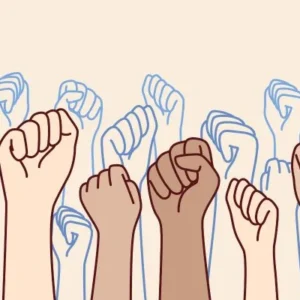In 2025, digital rights advocates, technologists, journalists, and civic leaders from around the world convened in Taipei, Taiwan, for RightsCon, one of the leading forums on human rights and technology. The summit provided a critical space for reflection and strategy, particularly for organizations navigating the increasingly restricted civic space in Southeast Asia. For Hivos’ Connect, Defend, Act! (CDA!) project, participation reinforced key strategic priorities, including care-centered activism and the urgent need to strengthen digital security frameworks for marginalized communities.
Sessions at RightsCon highlighted the growing wave of online repression, including censorship, surveillance, and platform manipulation, which is intensifying during political transitions. Case studies from Bangladesh, Sri Lanka, Cambodia, and Indonesia demonstrated how governments, social media platforms, and influencers are reshaping public narratives and restricting dissent. In response, activists shared practical resistance strategies, such as Taiwan’s development of alternative communication infrastructures, offline messaging apps, repurposed hardware, and decentralized networks, offering models for safe coordination in hostile digital environments.
A key theme that emerged was the importance of shifting from traditional security measures to a holistic, care-centered approach. Discussions emphasized emotional and collective care as essential for human rights defenders, particularly women, queer activists, and young civic actors. Survivor-centered models, trust-building, and trauma-informed organizing were highlighted as more effective and sustainable than conventional risk-focused strategies. CDA! partners co-organized roundtables that integrated gender equality and social inclusion principles into safety training, underlining the need for participatory and context-sensitive methods grounded in storytelling and mutual support.
The insights from RightsCon are directly informing CDA!’s work, particularly within the “Defend” component, which focuses on community-led safety assessments and support systems. By centering lived experience and relational ethics, these interventions aim to strengthen both individual security and the resilience of networks and movements. Summit learnings emphasize that safety is a co-created process, shaped by relationships, clarity of objectives, and mutual respect, rather than a simple checklist of tools.
RightsCon also demonstrated its strategic value as one of the few global spaces for human rights and technology actors to collaborate, access tools and resources, and validate experiences often overlooked in formal policy settings. For Southeast Asian civic actors, the summit spotlighted structural challenges such as online gender-based violence, internet shutdowns, and digital surveillance, reinforcing that these are not only technical but also fundamental human rights issues. As CDA! moves forward, the lessons from RightsCon 2025 will guide its strategies, centering care, resilience, and collective power. CDA! Project Officer Nisrina Nadhifah emphasized that protection is also about presence—creating space for individuals and communities to be seen, heard, and supported.






